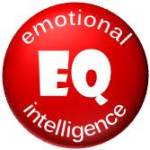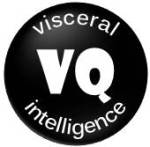 Back before the mid-twentieth century, educational psychologists grabbed hold of a notion that human intelligence could be measured. The so-called “intelligence quotient” was hailed as a way of diagnosing an individual’s intellectual aptitude; not just how smart he or she was but how capable the individual was of getting smart.
Back before the mid-twentieth century, educational psychologists grabbed hold of a notion that human intelligence could be measured. The so-called “intelligence quotient” was hailed as a way of diagnosing an individual’s intellectual aptitude; not just how smart he or she was but how capable the individual was of getting smart.
Inevitably, given the fact that Western science and psychology was riding the Cartesian-Newtonian wave of rationalism and the promise of mathematical reasoning (proving so successful in science, technology, and engineering), the IQ test favored operations of analysis, computation, logical abstraction, and problem solving.
Those who scored high on the IQ test were matched with better education (who wants to waste resources on just average or below-average abilities?), more opportunities, and higher paying jobs. After all, we need smart people running The Show, not mediocre intellects and irrational idiots who will certainly botch things up and send us all hurtling into oblivion. Parents would proudly publish the exceptional IQs of their children on bumper stickers and any chance they got.
In light of more recent discoveries and advances in psychology and neuroscience, I propose that the classical “IQ” be renamed “RQ,” for rational intelligence, since the category really only measures one type of intelligence and not intelligence overall.
 In 1995 Daniel Goleman published a theory of “emotional intelligence,” which he claimed underlies these rational-mathematical operations with social and interpersonal competencies that orbit closer to the core of the self. Studies had been going on for some time, researching the benefits of emotion regulation in infants and young children.
In 1995 Daniel Goleman published a theory of “emotional intelligence,” which he claimed underlies these rational-mathematical operations with social and interpersonal competencies that orbit closer to the core of the self. Studies had been going on for some time, researching the benefits of emotion regulation in infants and young children.
These studies convincingly demonstrated the critical importance of emotional intelligence. Goleman made his case that emotional intelligence matters “even more” than IQ when it comes not only to academic success but to a general proficiency in life.
In the meantime, Goleman’s “EQ” (shorthand for emotional quotient) has slowly made its way into the conversation of education theory, resulting in some changes in how teachers teach, how students learn, where the curriculum can be improved, and why an “enriched” learning environment is essential to successful education. Despite these changes – and by no means have they been deep and systemic changes to the dominant paradigm – our schools continue to favor IQ over EQ when it comes down to rendering a diagnosis (called a grade) on individual intelligence.
Because I work in higher education, this whole topic fascinates me. I can see far-reaching implications for a broader notion of intelligence – if only education theorists, school administrators, and classroom instructors are willing to challenge long-standing assumptions. As change is often costly, a major challenge will be identifying new funding sources and resource channels. As far as changes to the public education system are concerned, because state legislatures typically under-support teacher salaries, school facilities, curriculum development, and technology updates, the changes we’re talking about are going to be hard-won.
 In 2000 Danah Zohar and Ian Marshall published Spiritual Intelligence: The Ultimate Intelligence, which the authors argued adds a third dimension to the already recognized IQ and EQ. Spiritual intelligence (SQ) gives individuals the ability to transcend the emotional and logical constructs of meaning where our beliefs about reality are held, expanding awareness into higher (and deeper) dimensions of reality as well as creative possibility.
In 2000 Danah Zohar and Ian Marshall published Spiritual Intelligence: The Ultimate Intelligence, which the authors argued adds a third dimension to the already recognized IQ and EQ. Spiritual intelligence (SQ) gives individuals the ability to transcend the emotional and logical constructs of meaning where our beliefs about reality are held, expanding awareness into higher (and deeper) dimensions of reality as well as creative possibility.
The authors carefully distinguished between spiritual intelligence and religious belief, explaining that while doctrines might be rational descriptions of an experience (i.e., a product of RQ), dogmatically holding and defending them can be evidence in fact that spiritual intelligence is not (or no longer) active.
Rational intelligence, even when balanced and enriched by emotional intelligence, can still be very much about short-term and proximate values, while spiritual intelligence opens awareness to the Big Picture and Long View where we can contemplate our existence and the consequences of our actions on a much larger scale.
Zohar and Marshall proposed that the addition of SQ to EQ and IQ made for a complete and comprehensive model of human intelligence. But something still seems to be missing. What about the autonomic nervous system, which is continuously regulating our body’s internal state and matching it to the ever-changing life situations unfolding around us? What about what we commonly call “gut responses” and our animal intuition? The drives and reflexes of instinct, though carrying on below the threshold of conscious intention or control, certainly represent a distinct type of intelligence.
Our visceral intelligence – what I’ll name VQ – is much deeper and more ancient than the three others. It manages our underlying mood, our rest and arousal, the tonal energy state of our internal organs, muscles, and skin. It is the survival and evolutionary intelligence of our animal nature.
Coming back to education, it is clear that the internal states of students and teachers – whether they are calm, present, and grounded, or agitated, anxious, or bored – will have predictable consequences on learning as it rises into conscious feelings (EQ) and articulate thoughts (RQ). Much of present-day education is focused on the transfer of rational knowledge and skills from experts (teachers) to novices (students), for the most part disregarding the quality of EQ rapport between both or the VQ internal state of each.
So let’s put it all together, in what we might call the “quadratic intelligence” of human beings (from quad, meaning four). Our greater system of intelligence, then, is four-dimensional, and each type (VQ, EQ, RQ, and SQ) engages us with reality in a unique and special way.
In the model above, a human brain is facing you, which means that the right and left hemispheres are opposite to yours. Popular theory identifies autonomic processes (VQ) with the brainstem, emotional feeling (EQ) with the “right brain,” and rational thinking (RQ) with the “left brain” – which isn’t altogether wrong, just too simplistic to be useful in any rigorous sense. Our brain is more a nested hierarchy of neural projections, circuits, and networks, having evolved through distinct stages of development represented in the brainstem (a “reptilian” stage), an outlying limbic system (the “old mammalian” stage), and a cerebral cortex with its distinct lobes of specialized processing.
My model suggests that EQ and RQ (which actually develop and come online in that order) are deeply reliant on VQ for the supportive internal state they need to function effectively. And, as Goleman says, since RQ is at its best when EQ is operating empathically underneath and alongside it, we are getting the sense that these first three intelligences are profoundly interdependent.
By telling stories and concocting theories (RQ) we can alter how we feel about ourselves and the world around us (EQ), effecting deep changes in our prevailing mood (VQ). On the balance, however, most of the time our passions (EQ) and reasons (RQ) are taking their cues from the energetic tone of our nervous state (VQ) and composing interpretations of reality that match it.
But where does spiritual intelligence (SQ) fit into the model? Should we simply follow the trajectory of development from VQ through EQ to RQ and assume that SQ is just a further extension of our rational intelligence? Since RQ is about organizing symbols in meaningful patterns, we might expect that SQ will capitalize on this propensity for constructing meaning and “talk about” spiritual (i.e., metaphysical) things like gods, souls, heaven and hell.
But not so.
SQ is positioned in my model between and above EQ and RQ, transcending both passion and reason to a point of higher awareness where a larger and longer horizon is beheld all at once. This is the perspective of wisdom. I agree wholeheartedly with Zohar and Marshall that spiritual intelligence is not to be identified with an individual’s religious commitment or theological fluency. Instead of getting tangled up with religiosity, SQ is what gives one the ability to see past our idols, myths, doctrines, and beliefs to the present mystery of reality (or Real Presence of Mystery).
By grounding us in being-itself – most immediately by a meditative practice of some kind that calms the body (VQ) and opens a clearing at the center of awareness – our spiritual intelligence enables us to rise above and break past the convictions that the religions frequently exploit to their advantage by compelling conversion, pushing membership, persuading donations, organizing crusades and justifying terrorist campaigns in God’s name.
We realize in an instant that All is One, that we’re in this together, that a shared and hopeful future ordains us with the responsibility of living for the good of the whole.


5 thoughts on “Quadratic Intelligence”